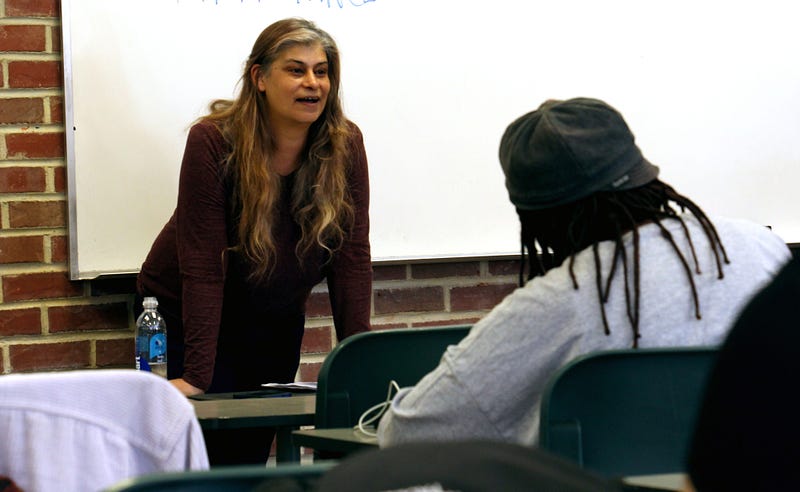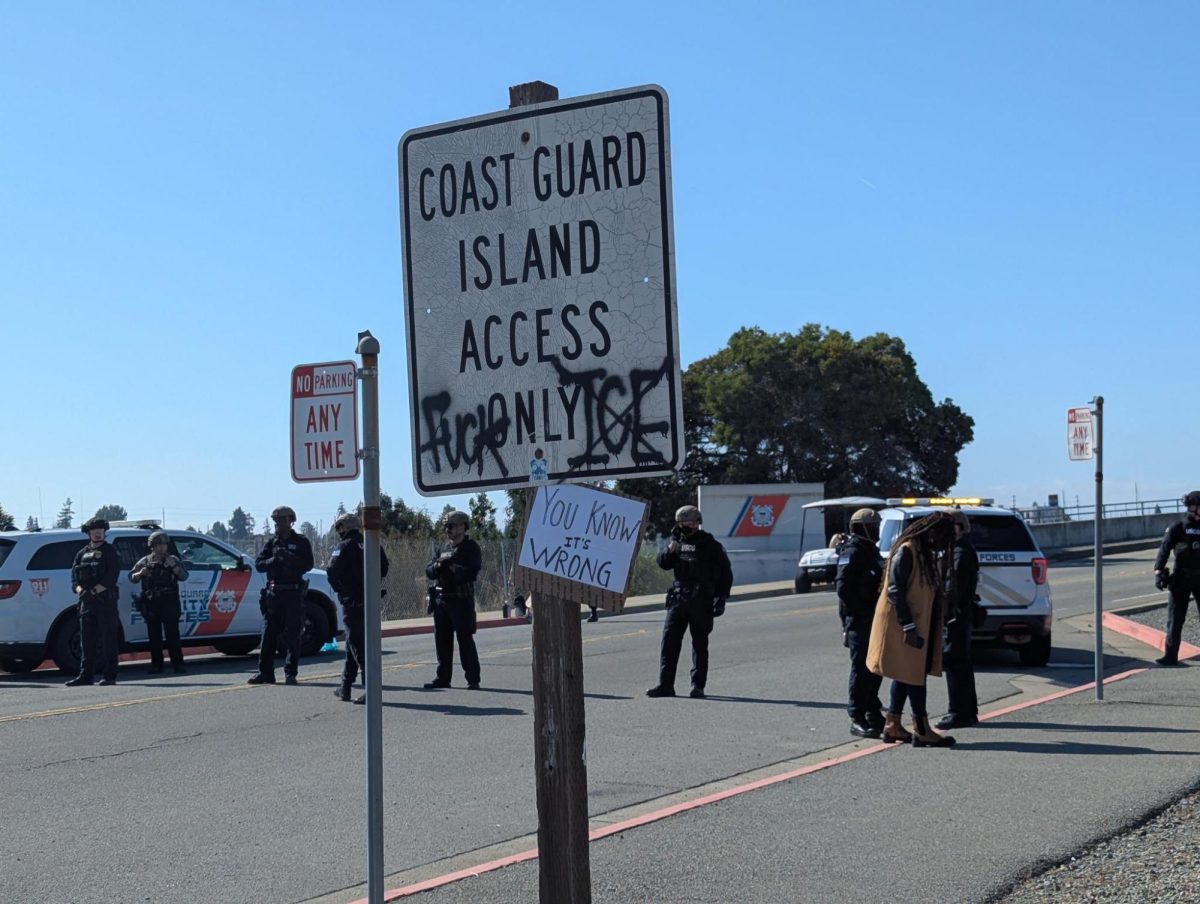
Tracy Rosenberg from Media Alliance lectures to Laney journalism
By Brian Howey
Social media can’t be trusted; six companies own 90 percent of the media in America; and the idea that there is choice between media outlets is an illusion.
These were some of the grave assertions made by Tracy Rosenberg, executive director of Media Alliance, during a visit to the Survey of Mass Media class on Sept. 28.
“Independent media organizations are starving,” she said, which is why organizations like hers are necessary to slow a shrinking alternative to a homogenized mass media.
Media Alliance was founded in 1976 by reporters trying to bridge the gap between journalism and the social justice movement. Today, Media Alliance is a non-profit organization that supports and advances alternative media sources with educational workshops and umbrella funding.
Much has changed in the world of journalism, Rosenberg said, including the way the word itself is used.
“Journalism is a verb, and anyone can do it.”
— Tracy Rosenberg, Media Alliance
“Journalism is a verb,” she said, and anyone can do it.The journalism industry has morphed into something less definitive, and technological advances make the tools of the craft available to anyone.
The internet, social media, and smartphones have given unprecedented access to information and the ability to record and self-publish anywhere, any time.
Social media platforms have become a popular source of news, too. Rosenberg demonstrated this by asking the class where they got their news. The majority said they read their news on social media sites like Facebook or Snapchat.
Sixty-two percent of American adults get at least some of their news from a social media site, according to a Pew Research Center poll. But social media companies can invade our privacy and spread fake news, Rosenberg said. Often free-of-charge, the price of social media use comes hidden in cryptic user agreements.
Google, Facebook and smart phone apps like Instagram or Snapchat collect troves of information on their users’ preferences, browsing history, and purchases.
90 percent of America’s mainstream media is now controlled by only six companies.
—
That information is given to law enforcement, government agencies, and sold to advertisers, Rosenberg said. She added that sites like Facebook and Google do little to weed fake news from their sites, leading to greater confusion, misinformation, and a general distrust of media.
Rosenberg said 90 percent of America’s mainstream media is now controlled by only six companies, likely referencing an infographic from the website FrugalDad.com.
The companies listed on the infographic are General Electric (GE), Newscorp, Disney, Viacom, Time Warner, and CBS. Comcast has since replaced GE as one of the “Big Six.”
That six companies own the vast majority of media in the U.S. is disturbing, Rosenberg said, and alternative media’s role in this country is more vital than ever. “Alternative media” is separate from the mainstream, which differs in its techniques of coverage, content, or distribution.

Some alternative media sources have a clear and purposeful bias meant to expose what is believed to be a purposeful ignorance of important issues and events by mainstream media.
Alternative media is often independent, lacks corporate funding, and charges for access. Rosenberg said it’s unrealistic for average people to pay for all of their news.
“If I had to make a donation to every independent media source I use every day, I’d be broke in a week,” she said.
Rosenberg blamed an imbalance between capitalism and information access. The two don’t work well together, she said, and there’s “no real easy, simple answer” to the problem.
Free access offered to social media is a big plus many consumers can’t ignore. Thus, Facebook is an intimidating competitor to small, independent media organizations.
Shrinking media choice and less-than-optimal laws guarding personal privacy can make resistance strategies seem helpless. Rosenberg suggested that students resist privacy breaches through use of the web browser Tor and privacy-conscious messaging apps like Signal.
And public pressure on elected officials could help change privacy policy, she said. She also noted that the public needs to “flush” a still-popular idea: If you need privacy, you’re probably guilty of something.
“The idea that status [as a private citizen] makes you not deserving of civil rights,” she said, “that’s the beginning of the end.”
Brian Howey is the News Editor at the Laney Tower. Email him at deathandtaxes(at)tutamail.com.
























